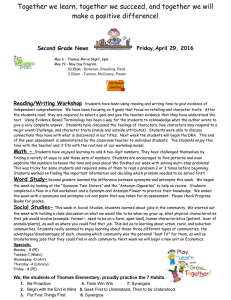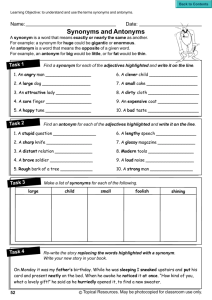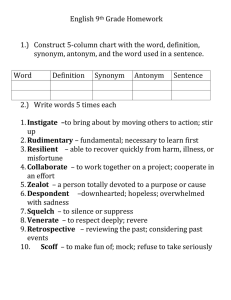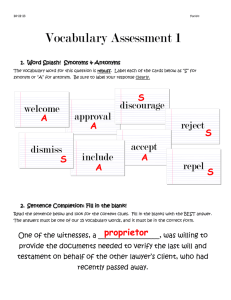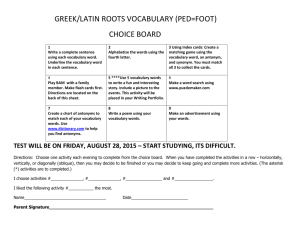Vocabulary in Context
advertisement
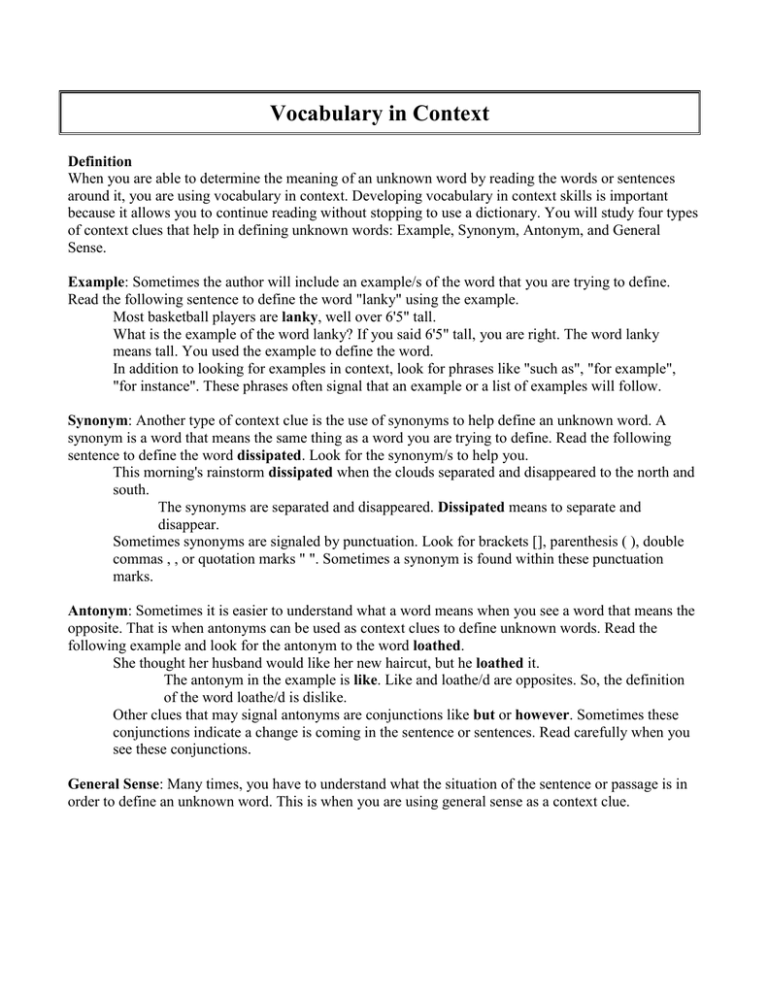
Vocabulary in Context Definition When you are able to determine the meaning of an unknown word by reading the words or sentences around it, you are using vocabulary in context. Developing vocabulary in context skills is important because it allows you to continue reading without stopping to use a dictionary. You will study four types of context clues that help in defining unknown words: Example, Synonym, Antonym, and General Sense. Example: Sometimes the author will include an example/s of the word that you are trying to define. Read the following sentence to define the word "lanky" using the example. Most basketball players are lanky, well over 6'5" tall. What is the example of the word lanky? If you said 6'5" tall, you are right. The word lanky means tall. You used the example to define the word. In addition to looking for examples in context, look for phrases like "such as", "for example", "for instance". These phrases often signal that an example or a list of examples will follow. Synonym: Another type of context clue is the use of synonyms to help define an unknown word. A synonym is a word that means the same thing as a word you are trying to define. Read the following sentence to define the word dissipated. Look for the synonym/s to help you. This morning's rainstorm dissipated when the clouds separated and disappeared to the north and south. The synonyms are separated and disappeared. Dissipated means to separate and disappear. Sometimes synonyms are signaled by punctuation. Look for brackets [], parenthesis ( ), double commas , , or quotation marks " ". Sometimes a synonym is found within these punctuation marks. Antonym: Sometimes it is easier to understand what a word means when you see a word that means the opposite. That is when antonyms can be used as context clues to define unknown words. Read the following example and look for the antonym to the word loathed. She thought her husband would like her new haircut, but he loathed it. The antonym in the example is like. Like and loathe/d are opposites. So, the definition of the word loathe/d is dislike. Other clues that may signal antonyms are conjunctions like but or however. Sometimes these conjunctions indicate a change is coming in the sentence or sentences. Read carefully when you see these conjunctions. General Sense: Many times, you have to understand what the situation of the sentence or passage is in order to define an unknown word. This is when you are using general sense as a context clue.
